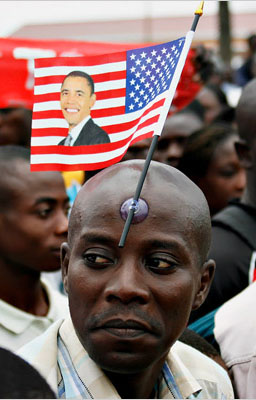Smart rules and stupid outcomes: the Skip Gates teachable moment
 This teachable moment is not only about race. It includes understanding why the Cambridge MA police department would arrest Skip Gates for breaking into his own home, and then continue to insist after a huge outcry that they did the right thing.
This teachable moment is not only about race. It includes understanding why the Cambridge MA police department would arrest Skip Gates for breaking into his own home, and then continue to insist after a huge outcry that they did the right thing.
My guess is that Sergeant James Crowley was following an inflexible rule that you arrest anyone who shouts angrily at a cop. This may be a good general rule to identify dangerous persons, and having many such rules allows the department to cope with an enormous policing task with limited staff. The support that Sergeant Crowley attracted from other policeman elsewhere may reflect their sympathy with such rules (although the New York Times found wide variations in the extent to which this particular rule is followed).

All organizations have rules for their staff, whose purposes is saving on costs and staff time by prescribing routine responses to different situations. McDonalds makes a ton of money by having rules that can be implemented on a large scale by a relatively small and unskilled staff. As usual in economics, however, there are tradeoffs. Robotic rules may lead to stupid outcomes, outraging and driving away the customers.
I once had a customer service person insist that I could not return a bookcase because I had already opened the box. She admitted I had a valid reason for returning it -- that it was missing a crucial set of screws -- which I could only have discovered by opening the box. But no amount of argument could make her depart from the rule against open box returns. (After further persistence, I eventually got the company to give me the missing screws.)
So organizations choose rule policies that find the sweet spot trading off lower costs of inflexible rules against possibly even higher costs of outraging the customers with stupid outcomes. For private firms, the sweet spot is determined by supply and demand – consumers may be willing to put up with a small amount of stupid outcomes from rules that get them a cheaper product. So a rule is not automatically bad because it leads on a few occasions to a stupid result.
Obviously, the police rule in Gates’ case led to a stupid outcome. The question is what is the sweet spot for police departments? Public bureaucracies don’t respond directly to customer demand in finding their sweet spot, it’s politically determined. Since many of the suspect “customers” are poor and powerless, police departments likely choose to err on the side of sticking to the rules and putting up with the outraged suspects. And historically, they were more likely to perpetrate outrages on black suspects than on white suspects.
All of which suggests something more damning than stupid behavior by one policeman – it looks like the Cambridge, Massachusetts police department has chosen a sweet spot very easy on its own officers and very hard on its customers – and perhaps even harder on the black customers. This is morally and politically unacceptable; the Cambridge Police seem more insulated against democratic accountability than they should be.
Of course, there are a lot of parallels in unaccountable aid agencies. This blog has pointed out cases where USAID refuses to change even when outside critics point out egregious misbehavior. They follow the low-effort rule “just keep doing what you are already doing,” because the critics have little political power over them.
So perhaps as Obama, Gates, and Crowley share a Sam Adams, they can move beyond who said what and discuss making public bureaucracies more politically accountable to the citizens.
 From Aid to Equality
From Aid to Equality

 Let’s grade
Let’s grade 
 On Wednesday night, US Secretary of State Hillary Clinton
On Wednesday night, US Secretary of State Hillary Clinton  In today’s NYT:
In today’s NYT: